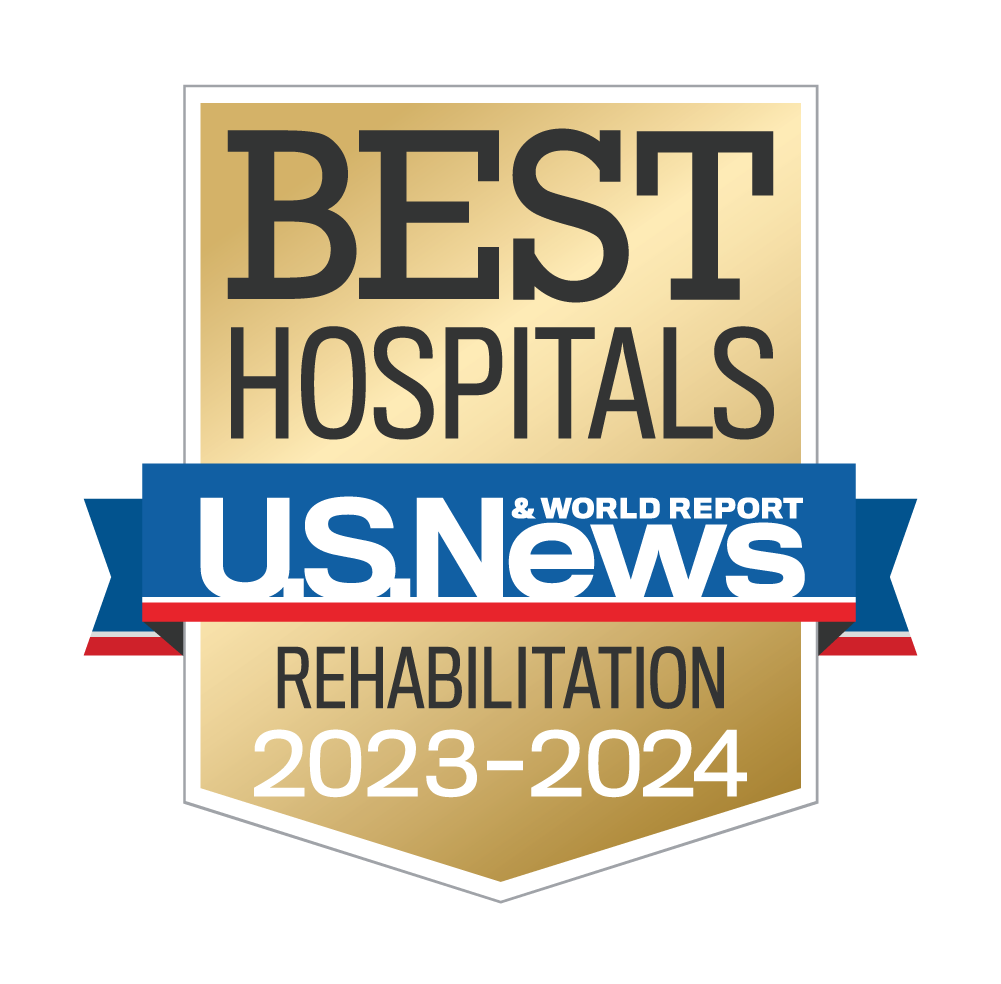The Rehabilitation Psychology/Neuropsychology services provide comprehensive psychological care to patients admitted to the inpatient rehabilitation service as part of a multidisciplinary rehabilitation team. Our psychologists and post-doctoral training fellows are well integrated into the rehabilitation team and work closely with the team. (If you're looking for our acute inpatient pediatric rehabilitation services, go here.)
Multidisciplinary team members include:
- doctors (attending physiatrist, neurologists, consulting specialists, etc.)
- nursing staff
- physical therapists
- occupational therapists
- speech language pathologists therapists
- rehabilitation engineering
- social work
- child life
Attending psychologists and post-doctoral fellows provide psychological and neuropsychological intervention to patients admitted to the rehabilitation service. Rehabilitation Psychology/Neuropsychology services are also often consulted when patients have rehabilitation psychology needs but are receiving care on another service (ex: oncology, pulmonology, pediatric intensive care unit (PICU) and neurosurgery). In particular, Rehabilitation Psychology/Neuropsychology services are available to all patients who will have rehabilitation needs at some point during their hospital stay.
Common Populations Served:
- Traumatic and Acquired Brain Injury
- Spinal Cord Injury
- Infections of the Brain and Encephalitis
- Stroke
- Amputation
- Pediatric Cancers (e.g. leukemia, brain tumor)
- Other Neurological Conditions (nervous system related)
In the Hospital:
Neuropsychological Services:
The neuropsychology team monitors and evaluates changes in mental status, tracks neurocognitive recovery (thinking skills) and conducts brief neuropsychological evaluations when appropriate. The neuropsychologist provides education to patients and families about how changes in neurological status affect thinking skills, emotions and behavior. During the recovery process patients often progress through many changes in thinking and behavior that can be difficult for families. The neuropsychologist helps families understand why these cognitive, behavioral and emotional changes occur. Neuropsychology will also provide recommendations about how best to support the child during different phases of recovery. Neuropsychology faculty and fellows work closely with the family and inpatient rehabilitation team to provide targeted interventions that support neurocognitive recovery, and also partner with the hospital school teachers and patients' home school teachers to help address academic needs as appropriate.
Rehabilitation Psychology Services:
Even when a patient's neurological status and brain function are stable, inpatient hospitalization isn’t easy. Inpatient rehabilitation includes an intensive schedule of therapies that strengthen the body and help patients regain abilities they have lost due to illness or injury. It is common for children to experience physical discomfort (pain, fatigue, etc.) and emotional distress related to the challenges associated with recovering from injury or illness and prolonged hospitalization. Rehabilitation Psychology/Neuropsychology services work with patients as they adjust to the expectations of inpatient rehabilitation and cope with injury or loss of functioning. Rehabilitation Psychology services may include:
- Behavioral pain management techniques
- Brief interventions to help patients tolerate therapies more easily
- Monitoring changes in mood and motivation
- Focused Problem solving interventions
- Cognitive Behavioral Therapy to manage feelings of anxiety or sadness
- Behavioral plans to promote compliance
Most patients experience a wide range of emotions during inpatient hospitalization and some amount of sadness and worry are normal, expected emotional reactions to illness/injury. The rehabilitation psychology service works to help children and families cope in a way that allows the child to effectively participate in therapies and plan for a safe and healthy return home. Rehabilitation psychology will also consult with team members and co-treat (attend other therapies with the patient present) to help understand and manage any psychological difficulties the patient is experiencing.
Going Home:
When it is time to return home at the end of your hospitalization, Rehabilitation Psychology/Neuropsychology works with families to help plan for a smooth return to home and to school. Most patients will still need more time to recover from their injury/illness after discharge from the hospital. Outpatient therapy appointments may be needed to help patients continue to build physical strength or thinking and reasoning skills. Rehabilitation psychology/neuropsychology will help patients and families make a plan for returning to school based on where the patient's skills and level of functioning are at the time of discharge. In many cases recommendations include:
- Outpatient neuropsychology testing
- Milestones Pediatric Neurorehabilitation program
- Establishing homebound instructional services
- Establishing an individualized education plan for school
- Referring to outpatient psychological services
- Recommendations for supervision and care at home
The neuropsychologist will work with the family and ask permission to speak with any appropriate school providers. If desired, the neuropsychologist will talk with the school to help school understand how the patient's illness/injury will affect their thinking skills, ability to learn, and ability to return to school. The rehabilitation psychology/neuropsychology service also makes an effort to partner with any other outpatient providers who will be treating the patient after discharge.
When to Refer:
Families should talk to their doctors if they have concerns about their child's neurological status, thinking skills, coping with their injury and hospitalization, mood and emotional functioning or ability to return to school due to changes in your child's functioning since injury. If you feel your child would benefit from these services, you may ask your child's primary medical team to request a consultation.
I have more questions:
Please call our clinic at (734) 936.7052 and we will do our best to answer all of your questions.
Resources:
Brain Injury
http://www.biausa.org/
http://www.brainline.org/
Spinal Cord Injury


